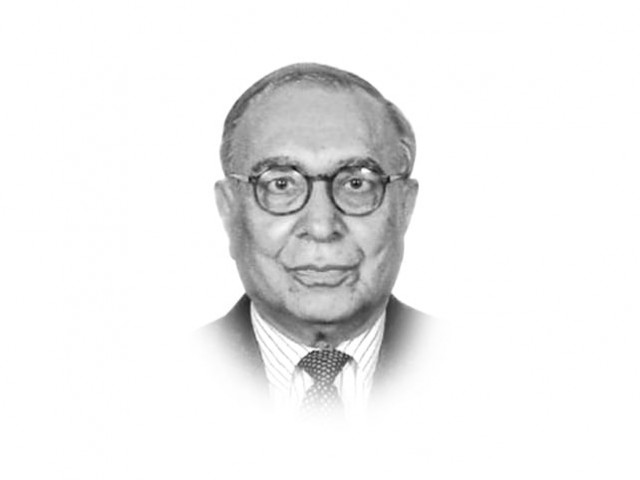In Karachi, hold on to the gains
Karachi needs a high-powered commission with assistance from the bureaucracy and society to produce a master document.

And yet, there have been gains, a kind of tortuous forward movement that needs to be recognised and protected. The latest killing spree followed the MQM’s withdrawal from the PPP-led coalition. Amongst the many traits that make the MQM a unique party in Pakistani politics is that it is vastly better at propaganda that keeps its supporters fully mobilised and transmits powerful messages to the other actors in the political drama. This time, after a long gap, it seems to have activated its underground activists to revive the slogan of a separate ‘Muhajir suba’ through wall chalkings. This provocative action was sanctioned as a tactic to raise the ante but it is bound to revive old apprehensions about the party’s hidden agenda. There is thus a strong case to hold the MQM to the constructive path it has traversed since the mid-1980s to present day when, having renounced such ideas, it became engaged in efforts to become a truly middle-class national party.
Anatol Lieven’s latest book "Pakistan: A Hard Country” (Penguin, 2011) has received well deserved praise within and outside Pakistan, though some readers felt hat he is a bit too enamoured of the MQM. A close reading, however, makes clear the reasons why he admires the party; principally because it has walked through a valley of blood and tears to perform the journey referred to above. He singles it out as “Pakistan’s only truly modern mass political party” that, in his words, “emerged through violence and still intermittently uses great violence against its enemies...”. There is a vast body of literature that substantiates the perception that the party did pass through a phase of using violence to fight its enemies while maintaining an internal cast-iron discipline. The violence directed against it by its religious and ethnic foes and by the state before Altaf Hussain decided to get co-opted in ever-changing power structures is also well-documented. Most interpreters trace the party’s cult of personality and its leader’s charismatic grip on his followers to his instrumental use of two Islamic traditions: Exploitation of martyrdom in the Shia tradition and that of total obedience to the pir in the Sufi orders. Respect for the chain of command and the readiness of cadres to obey combined well with the party’s ability to tap into knowledge, skills and innovation needed to accelerate Karachi’s development, especially its infrastructure, whenever it ‘ruled’ the chaotic megalopolis.
Unfortunately, the party has not outgrown its ethno-national origins. People from the rest of the country have always been drawn to Karachi, the great port city, which accounts for a high percentage of Pakistan’s revenues and share of GDP. And successive governments failed to plan for this massive internal migration. They have not been able to manage public lands where exhaustive British-era documentation was available and where much better town planning could have been undertaken.
The growth of katchi abadis with scant regard for law and sound urban planning has produced politically-linked thugs and mafias stronger than the state. Karachi needs a high-powered commission with strong assistance from the bureaucracy and civil society to produce a master document by scrutinising the land in the outlying areas for what the British would have called a “permanent settlement” strictly within the four walls of law and to the exclusion of land mafias. The reversion to the old administrative set-up is theoretically a retrogressive step but its expedient justification would be reinforced if this old system can help produce a master plan to save Karachi that can be implemented honestly and efficiently.
Published in The Express Tribune, July 18th, 2011.














COMMENTS
Comments are moderated and generally will be posted if they are on-topic and not abusive.
For more information, please see our Comments FAQ